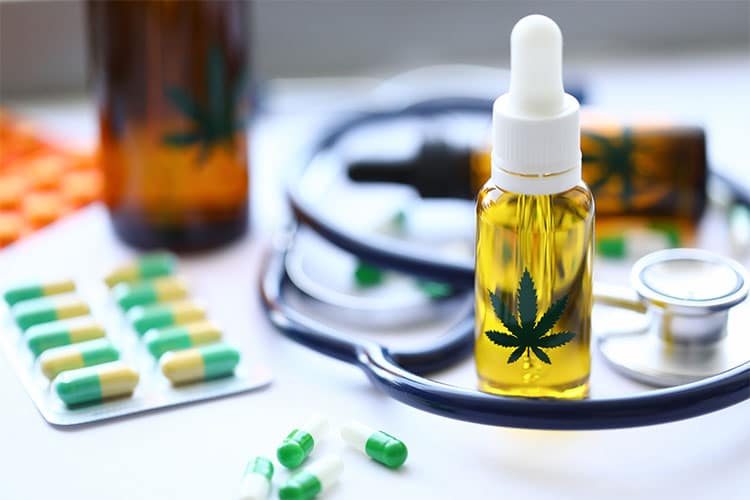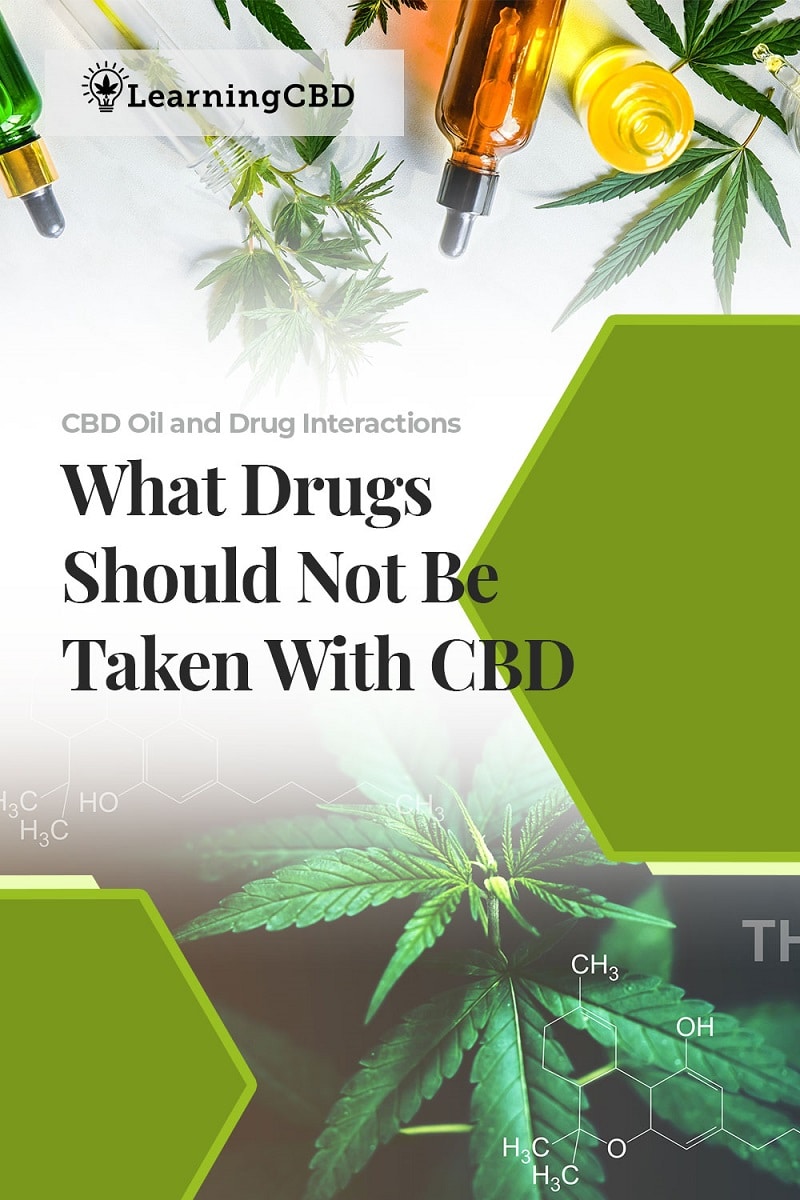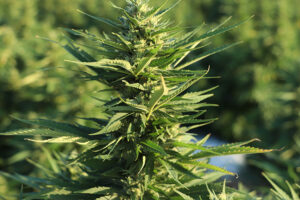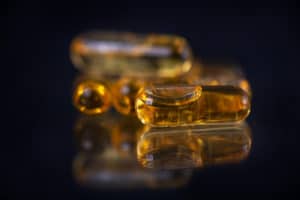The use of CBD has been gaining a lot of popularity with people as it potentially helps to ease symptoms of stress, physical pain, and various health conditions. These include anxiety, depression, nausea, etc. Moreover, due to its therapeutic effects, CBD has been increasingly sought-after by consumers.
However, it has a few side effects and raises many questions for a new user, such as:
What prescription drugs should not be taken with CBD oil?
What are the side effects associated with using CBD Oil?
What happens if drugs interact with CBD oil, and how can it be harmful?
While many studies show the use of CBD oil is safe, some drugs indeed do interact with CBD oil, which means it can cause harm or upset vital systems of the body.
Here we have compiled a detailed guide that will answer all your possible queries regarding drug interactions with CBD Oil and educate you about the dos and the don’ts of consuming CBD Oil.
Let’s dive right into it then!
What is CBD Oil?
CBD (Cannabinoid) is a chemical compound found in the Cannabis Sativa Plant, which is only one of the other 113 compounds known as phytocannabinoids in this plant. CBD is one of the most significant components of marijuana. However, it is extracted from the hemp plant as it is more concentrated with this cannabinoid.
The shoots, roots, and stem of the hemp plant are combined to extract CBD Oil as they are the most highly-concentrated parts of the plant with CBD. The resultant oil is then diluted with hemp or coconut oil to make it consumable. There are lots of different variants of CBD Oil, for example, CBD Isolate, Full Spectrum, Broad Spectrum as well as others.
Although CBD is a marijuana component, unlike THC, it does not have any intoxicating properties or psychoactive effects. That means the consumer of CBD does not experience the high sensation, and neither do they feel sedated. For this reason, many users felt encouraged to use CBD products such as oils and edibles instead.
Legal status
Industrial hemp was legal in the USA, but it got banned after the passing of the Marijuana Tax Act of 1937. Lucky for us, the Farm Bill has prompted the legalization of the cultivation, manufacturing, transportation as well as sale of CBD products which contain THC levels lower than 0.3%.
For consumers, this means that they can produce and use hemp products, including CBD, in any state. Although it may be legal to grow and sell hemp, each state has the right to set their specific policy. As of now, marijuana and CBD both are legal in Washington, Washington D.C., Alaska, Colorado, California, Michigan, Maine, Massachusetts, Nevada, Oregon, and Vermont.
While it is legal medicinally in 23 states, 14 states only permit CBD, and both products are banned in South Dakota, Nebraska, and Idaho as well. Therefore, consumers must be aware of their state laws before consuming CBD products.
Currently, the FDA has legalized the use of only a single CBD infused drug, commonly known as Epidiolex. The drug has shown promising results in two extreme cases of epilepsy in children.
CBD Oil Side Effects
There are few risks associated with CBD consumption. According to research, it is mostly safe to consume, as it poses no public health risks or potential for dependency. However, users may experience a few side effects such as diarrhea, fatigue, and restlessness, as well as changes in weight and appetite.
A different study conducted on rats suggested that CBD extracts that were highly concentrated cause liver toxicity. However, the dosage of CBD administered to the rats was high for some and low for others so the results might be inaccurate. Such effects are In addition to that, some of the side effects of CBD oil also include light-headedness, low blood pressure, and a dried mouth.
Other than that, CBD might interact with any prescription drugs you are already taking. Therefore, you should consult your doctor before consuming CBD products. For women who are pregnant, cannabinoids such as CBD could be potentially harmful to them and their babies. Therefore, we do not recommend consuming CBD products during pregnancy.
Drug Metabolism and Why is it Important?
Before getting into drug interactions with CBD oil, it is crucial to understand how the body metabolizes different drugs and medications. Similar to food, drugs need to be broken down into simpler substances through chemicals known as enzymes, later to be absorbed in the bloodstream.
In addition to that, a group of enzymes called cytochrome P4509(CYP450) is responsible for the metabolism of the body. The process itself takes its course all over the body, including the gut but mostly in the liver.
Several drugs influence CYP450, which causes the whole process of metabolism to either speed up or slow down. This difference in the metabolism rate can affect how drugs or other supplements are processed in the body, therefore, causing a drug interaction.
What is the Role of CYP450 in Drug Interaction with CBD Oil?
As research shows, the group of enzymes known as CYP450 metabolizes various cannabinoids inclusive of CBD as well. Within the CYP450 is the CPY3A4, an enzyme which is responsible for metabolizing 60% of the prescription drugs. However, CBD affects the CPY3A4 enzyme causing it to slow down. As a result, it is not able to break down the supplements and drugs in the system.
On the contrary, taking CBD while on medications can also affect the CPY3A4 enzyme in a way that it is unable to effectively break down CBD. That means even if you take your prescribed dose, the drugs in your system are metabolized too slowly and stay longer in the body. Thus, increasing the chances of dangerous side effects.
Furthermore, drug interactions with CBD oil can also increase the rate of metabolism, which means there may not be enough drugs or supplements in your system required to keep you healthy.
What Drugs Should Not Be Taken with CBD?
There is still a lot of research needed to determine the interactions between drugs and CBD Oil. However, one thing we advise against is the consumption of grapefruit if you are on prescription drugs with a grapefruit warning. This is because it can increase the level of concentration of the drug in the system, which could lead to harmful side effects as well as an overdose.
Some of the drugs that include a grapefruit warning are:
- Blood pressure medication
- Erectile dysfunction medication
- Anxiety medication
- Antidepressants
- Cholesterol Medications
Similarly, some of the drugs that you should avoid as they might interact with CBD include:
- HIV Antivirals:Lamivudine, tenofovir emtricitabine as well as stavudine
- Antihistamines:cetirizine, fexofenadine, clemastine, loratadine, brompheniramine, and chlorpheniramine.
- Antibiotics: cephalexin, amoxicillin-clavulanate, doxycycline, ciprofloxacin, levofloxacin, clindamycin, azithromycin, and metronidazole
- Anesthetics: ketamine, thiamylal, methohexital, propofol, and methohexital.
- Antipsychotics: clozapine, risperidone, ziprasidone, asenapine, cariprazine, quetiapine, and lurasidone
- Non-Steroidal Anti-Inflammatory Drugs(NSAIDs): naproxen, salsalate, tolmetin, aspirin, ibuprofen, ketorolac, oxaprozin, diflunisal, as well as piroxicam.
- Proton-Pump Inhibitors(PPIs): pantoprazole, esomeprazole, omeprazole, lansoprazole, rabeprazole, and dexlansoprazole.
- Beta-Blockers: nadolol, propranolol, sotalol, betaxolol, bisoprolol, timolol, atenolol, and bisoprolol fumarate
Other medications such as prodrugs are inactive compounds that turn active when ingested into the body. However, if the metabolization of this compound is reliant on the CYP system then a very inadequate amount of the active compounds are released, which is not enough to have the right effect on your body.
An example of such a prodrug is codeine, which turns into morphine when broken down. Another example is the ADHD prescription drug Concerta, also known as lisdexamfetamine.
In addition to that, there are many on-going studies related to drug interaction with CBD. These researches have had different results, and it is still too early to determine anything.
A recent study analyzed the effects of Clobazam and CBD in a group of children with epilepsy. They observed increased levels of clobazam and concluded that it was indeed safe. However, they also suggested closely monitoring the drug dosage for better results.
With research limited, the consumption of CBD with other drugs might be harmful and have adverse effects. However, more scientific evidence is required to determine the intensity of these effects.
With proper care and medical supervision, CBD and drugs can be used simultaneously and safely. It is also normal for your doctor to monitor the plasma concentration of the drug you are consuming. Your liver function is also a good indication of the safety of using CBD oil with other prescription drugs.
While taking CBD and any prescription together, you must be aware of any changes you might feel in your body or any side effects from the medication. Some of these side effects include nausea, restlessness, and drowsiness. If drug metabolism is affected in any way,
In the end, it all comes down to consulting your doctor first before you plan on consuming CBD on top of any medication you might already be on. Even drugs with grapefruit warnings can work with CBD if your doctor determines the right dose that works for you by monitoring your drug and supplement levels closely.
What’s in it for you?
It is normal to wonder what you could gain from consuming CBD without knowing its real benefits. These benefits include relief from pain. Several marijuana components, including CBD, contain pain-relieving abilities. According to many studies, chronic pain can be relieved by CBD as it affects the endocannabinoid receptor activity, interacts with the neurotransmitter as well as decreases swelling.
Furthermore, it is also a safe way to curb anxiety or depression. We are well aware that medication that helps you against depression can have adverse side effects such as sexual dysfunction, drowsiness, headache, and insomnia. Therefore, many people have started choosing CBD as it not only shows promise but is a much better alternative to addictive drugs like benzodiazepines.
Moreover, the use of CBD oil might improve your heart function. Higher blood pressure might cause coronary heart disease and several other ailments. CBD helps lower blood pressure due to its stress-relieving and anxiety-reducing qualities. A recent study surrounding the effects of CBD concluded similarly, where nine men were given a single dose of 600mg CBD oil. The results were quite promising as subjects showed improved blood pressure and stress levels.
Best CBD Brands in The Market
If you are looking for the best CBD products present in the market, we connect you with the top brands in the business and help you find one that suits you best. There are various CBD products in the market, each with its benefits.
Some of these include Broad- Spectrum, Full Spectrum that contains 0.3% THC, as well as CBD Isolate products that are, of course, 100% pure CBD and the ideal choice for people who are not fans of THC products or intoxicating effects. Whereas the other two, Broad Spectrum and Full Spectrum, are made of different compounds from the plant. The main difference between the two is that full-spectrum contains trace-quantity of THC.
Furthermore, your method of consumption of CBD is an important factor when it comes to deciding which product suits you best. Some people are into smoking a CBD strain, while others are more attracted to the idea of using CBD topicals. In the case of a CBD topical, choose one that has higher concentration levels to make it more effective. There are other products as well, like edibles, gummies, and even capsules, which make consumption simple yet effective.
Visit our shop now and choose from the best brands that deliver the most premium-quality CBD products available right now!
FAQs about What Drugs Interact with CBD Oil
Question: Is CBD Oil safe for consumption with other prescription drugs?
Answer: While there is limited research regarding the interaction of CBD Oil with other drugs, we suggest consulting with your physician before you opt for any CBD-related treatment. Furthermore, there is a possibility that CBD might reduce the availability of prescription drugs in your system.
Question: What kind of drugs should not be taken with CBD oil?
Answer: HIV Antivirals, Antihistamines, Antibiotics, Anesthetics, Antipsychotics, Non-Steroidal Anti-Inflammatory Drugs(NSAIDs) Proton-Pump Inhibitors(PPIs), Beta-Blockers are some of the drugs that should never be taken with CBD oil and you should always consult your doctor.
Question: Are kidneys harmed by the use of CBD?
Answer: Since the CBD is excreted out through the intestines there is very little interaction with the kidney during metabolism. However, the liver can be harmed if kidney medication interacts adversely with CBD.
Question: Is CBD Oil beneficial for heart function?
Answer: Yes, CBD contains anti-inflammatory properties and anxiety-reducing effects which not only are safe for the heart but also reduce the blood pressure. Therefore, reducing the risk of heart-related diseases.









